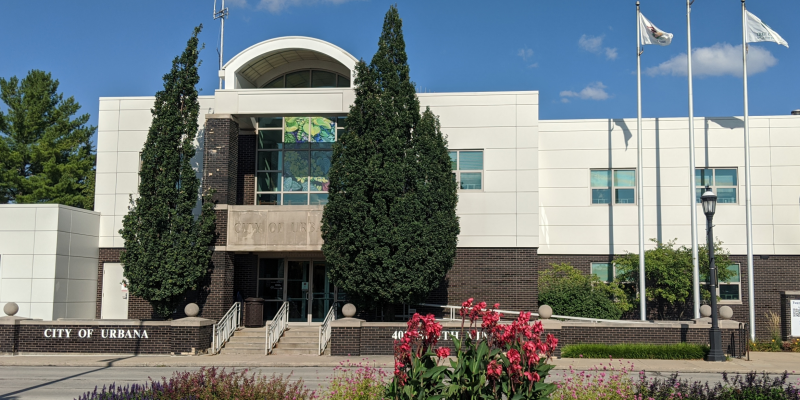As we each attempt to explain the difference between our expectations in January and the reality of today, one of the most common phrases uttered throughout this never-predictable year has been, “Well, before the pandemic hit.” Nothing has gone according to plan. And though our wardrobes may have loosened up during this extended period of “stay-home to stay-safe,” other changes to our lives and work have proven less pleasant. We have been forced to make decisions based on evolving facts that even the experts have sparred over. We have all had to find new ways of functioning in our daily lives, at work, and within the community.
The Urbana-Champaign region has been hit hard by the pandemic and the resulting economic downturn. Social services have been stretched to the limit. As unemployment and under-employment increase, our neighbors face utility shutoffs, evictions, and food insecurity. Local businesses have struggled to retool in order to stay afloat in a radically different context. Throughout, local non-profits and regional governmental organizations have worked tirelessly to address these and other urgent needs.
With nearly three decades of experience working in non-profits and grants management at the City of Champaign, Champaign County Habitat for Humanity, and now at Urbana, Sheila Dodd has a deep understanding of the need to plan ahead. Winning and distributing grants requires extensive fore-thought and intricate planning. But this year has presented Dodd with unprecedented challenges. Since early spring, the grants management division of Urbana’s Community Development Services, led by Dodd, has scrambled to distribute existing grants and obtain emergency funds in order to provide Urbana’s residents and small businesses with urgently needed resources. “Federal and state COVID relief funds have been critical to the survival of individuals, families and local businesses,” says Urbana Mayor Diane Marlin. “City staff have worked tirelessly to help people navigate the complicated processes, access the funds, and spend the money appropriately. We also have strengthened relationships with community partners to boost our capacity. None of us can do this alone.”
Federal block grants totaling approximately $1.4 million were already budgeted for 2020 in Urbana, including $875,000 in HOME Investment Partnerships Program (HOME) funds to expand affordable housing and provide rental assistance. But as the pandemic spread early in the spring, Dodd and her office had to address variety of emerging needs. $294,000 in CARES Act for the Community Development Block Grant (CDBG-CV) funds were set aside to address impacts directly related to COVID. Grants up to $10,000 were distributed to 27 local small businesses by the end of July; 22 of these were awarded to minority or women-owned businesses. Recipients had the flexibility to utilize these funds for rental assistance, payroll protection, and/or business modifications. In addition, more than 30 families were helped with up to three months rental or mortgage assistance through this set-aside. Urbana works with regional agencies to help those families find additional support as needed.
Dodd’s office has also managed a portion of a region-wide $700,000 emergency solutions grant to provide $194,000 in rapid rehousing assistance through the Cunningham Township Supervisor’s Office and homeless assistance through CU at Home. Cunningham Township reports helping over 1000 Urbana residents this year, including providing 119 households with rental assistance and another 296 households with general assistance. Urbana obtained an additional allocation of $334,000 in CDBG-CV funds in November, and Dodd is hopeful that more resources will be made available once Congress passes additional relief bills.
Sheila Dodd and others working in community development and social services around the region have achieved a great deal this year, all while working remotely and coping with the same challenges each of us face to stay safe and sane in 2020. When we spoke the week of December 7th, Dodd said she missed the spontaneous creativity and immediate input that is possible when staff work in the same space. But our conversation quickly turned to the positive outcomes she’s observed since early spring. Community leaders from around the region, already working closely together, now have weekly virtual meetings to identify needs and gaps in services, learn from each other’s efforts, and support public health initiatives. They have collaborated on outreach to Ameren and other utility providers to avert shut-offs. The boundaries between Rantoul, Champaign, and Urbana ultimately matter less than the need to collaborate as a region. As Dodd emphasized, homelessness and hunger do not end at Wright Street. We are all in this together.
To find out more about what resources are available, Dodd suggests residents contact 211. This is the best region-wide place to start with any questions.
The Cunningham Township Supervisor’s Office maintains a robust page with links to regional resources during COVID-19.
Julie Laut is a former Urbana City Council member for Ward 2.








